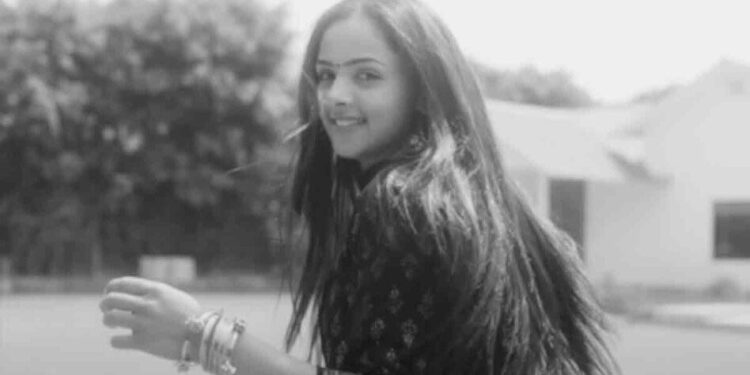Gurugram, India – July 11, 2025 – The sports world is reeling from the shocking murder of Radhika Yadav, a 25-year-old state-level tennis player, who was fatally shot by her father, Deepak Yadav, in their Gurugram home on July 10, 2025. The incident, which unfolded in the upscale Sushant Lok area of Sector 57, has sparked outrage and grief across India and beyond. As details emerge, the case reveals a complex mix of family tensions, societal pressures, and personal insecurities that culminated in this unthinkable tragedy. This article explores the reasons behind Radhika’s killing, drawing on police statements, family accounts, and societal context, while presenting the story in a way that resonates with a global audience.
—
A Rising Star Cut Down
Radhika Yadav was no ordinary young woman. A talented tennis player, she had represented Haryana in state-level tournaments and competed internationally, earning a ranking among the top 200 in women’s doubles by the International Tennis Federation (ITF). Known for her agility, discipline, and sportsmanship, Radhika was a rising star in Indian tennis, with a promising career ahead of her. After a shoulder injury two years ago halted her competitive playing, she pivoted to running a tennis academy in Gurugram, coaching around 50 aspiring players and building a legacy in her community.
Her ambition extended beyond the court. Radhika aspired to become a social media influencer, sharing her journey through Instagram reels and even appearing in a music video, which gained attention online. These pursuits, however, reportedly became points of contention with her father, Deepak Yadav, a 49-year-old businessman with a successful rental property business earning between Rs 15 lakh to Rs 17 lakh (approximately $18,000–$20,000 USD) a month. Despite his financial success, Deepak’s disapproval of Radhika’s choices led to escalating tensions that ended in tragedy.
—
The Fatal Day: What Happened?
On the morning of July 10, 2025, Radhika was cooking breakfast in the kitchen of her family’s double-storey home when Deepak, in a fit of rage, fired five shots from his licensed .32 bore revolver. Four bullets struck Radhika, with an autopsy later revealing wounds to her chest and neck, contradicting initial reports that she was shot in the back. She succumbed to her injuries on the spot, despite being rushed to a private hospital. Her uncle, Kuldeep Yadav, who lived on the ground floor of the same house, discovered her body after hearing gunshots and alerted the authorities.
Deepak was arrested immediately and confessed to the crime, telling police, “I told my daughter to close her tennis academy, but she refused. This situation kept bothering me as it hurt my dignity. I was very troubled and stressed. Because of this tension, I took out my licensed revolver and shot her.” His confession paints a picture of a man consumed by pride and societal pressure, unable to reconcile his daughter’s independence with his own sense of identity.
—
The Core Conflict: The Tennis Academy Feud
The primary motive for the killing, according to Gurugram Police, was a long-standing dispute over Radhika’s tennis academy. Deepak, a financially well-off individual who owned multiple properties, including a luxury farmhouse, was reportedly humiliated by villagers taunting him for “living off” his daughter’s success. These taunts, which labeled him a “gira hua baap” (fallen father), struck at his sense of dignity and authority. He had invested Rs 2 crore (approximately $240,000 USD) to help Radhika start the academy, but later demanded she shut it down, believing her work undermined his status as the family’s provider.
Radhika, however, stood her ground. Having built a successful academy that trained dozens of young athletes, she refused to close it, arguing that it made no sense to abandon a venture her father had initially supported. This defiance, coupled with her growing financial independence, reportedly fueled Deepak’s resentment. Police sources revealed that he had been “stewing” for three days before the murder, alternating between anger and thoughts of suicide. Ultimately, his frustration boiled over into a violent act that ended his daughter’s life.
—
Social Media and Cultural Tensions
While the tennis academy was the primary trigger, Radhika’s social media activity added another layer of tension. After her injury forced her to step back from competitive tennis, Radhika embraced social media, posting Instagram reels and appearing in a music video shot in Delhi in the presence of her mother. These activities, while seemingly harmless, were a source of conflict with her father, who disapproved of her online presence. Some reports suggest he demanded she remove the music video from her social media, viewing it as inappropriate or damaging to the family’s reputation.
In a country like India, where traditional family dynamics often clash with modern aspirations, Radhika’s pursuit of a public persona may have been seen as defiance of patriarchal norms. Her father’s discomfort was compounded by villagers’ gossip, which accused Radhika of being “characterless” and Deepak of failing to “control” her. These societal pressures, rooted in outdated notions of honor and gender roles, likely exacerbated the rift between father and daughter.
However, Gurugram Police have downplayed the social media angle, stating that the investigation found no direct link between the music video and the murder. “All other reasons are rumors,” said Police PRO Sandeep Kumar, emphasizing that the tennis academy dispute was the main motive. Despite this, the speculation around Radhika’s Instagram reels reflects the broader cultural tensions that often surround young women asserting their independence in India.
—
A Family’s Tragedy and a Community’s Loss
The murder has left Radhika’s family, friends, and the sports community in shock. Her uncle, Kuldeep Yadav, filed the formal complaint against Deepak, highlighting the family’s distress. Radhika’s last rites were performed on July 11 in Gurugram, with mourners gathering to honor her memory. Her friend, Sanya Yadav, described her as “very hard-working,” while Olympic gold medalist Neeraj Chopra and fellow tennis players Sowjanya Bavisetti and Sharmada Balu expressed their grief, calling her an “excellent example” of a female athlete.
The case has also sparked broader conversations about gender, independence, and societal expectations in India. Posts on X reflect public outrage, with users lamenting the toxic mindset of “log kya kahenge” (what will people say), which prioritizes social perception over individual lives. One user wrote, “She wasn’t just a daughter. She was a state-level tennis player, a dreamer, a fighter. But Radhika’s battle ended not on the court—but in her own home.”
—
A Deeper Look: Societal Pressures and Toxic Masculinity
Radhika’s murder is not just a family tragedy but a stark reminder of the societal pressures that can drive extreme actions. Deepak’s actions were rooted in a sense of shame and insecurity, fueled by taunts that challenged his role as a father and provider. In many parts of India, traditional expectations place immense pressure on men to uphold family honor and control, often at the expense of women’s autonomy. Radhika’s success—both as a tennis player and as an entrepreneur—threatened these norms, making her a target of her father’s frustration.
The case also highlights the dangers of unchecked access to firearms. Deepak’s licensed revolver, a status symbol accessible only to those with wealth and connections, became the tool of his rage. This raises questions about gun ownership regulations and the need for stricter oversight, especially in domestic settings where tensions can escalate.
—
The Investigation Continues
Deepak Yadav has been placed in one-day police custody, and the investigation is ongoing. The autopsy report, which revealed four bullet wounds to Radhika’s chest and neck, has raised questions about the initial narrative that she was shot from behind. This discrepancy may prompt a closer examination of the events leading up to her death. Police are also exploring other potential factors, though they have ruled out honor killing or the music video as direct motives.
The sports community and the public await justice for Radhika, whose life was cut short just as she was carving out a new path after her injury. Her story is a tragic reminder of the cost of societal pressures and the urgent need for cultural change to support women’s aspirations without fear of retribution.
—
Conclusion
Radhika Yadav’s murder is a heartbreaking loss for India’s sports community and a sobering reflection of the challenges faced by women who dare to defy traditional expectations. Her father’s actions, driven by a toxic mix of pride, societal taunts, and personal insecurity, have robbed the world of a talented athlete and a determined young woman. As the investigation unfolds, Radhika’s legacy as a tennis player, coach, and dreamer will endure, inspiring calls for change in a society where independence should never come at the cost of a life.





































